Intercol has been active in developing several strategically-chosen markets this year, gaining extra market share in the packaging, automotive, graphical, wood, construction and textile industries with the reliable adhesives it manufactures
By securing its stable performance in the years to come, our high-quality adhesives are developed by means of a vertical market view. “These are markets we have identified as either being historically strong or having a unique product offering. Packaging, filters, product assembly, polyurethane hotmelts and water-based labelling are examples of these”.
Every year in march, we hold a customer training program in Ede The Netherlands, aimed at different industries, which helps understanding from both sides, customer and supplier, the different needs of these markets. These trainings, targeted on packaging, converting, corrugated, labelling, bookbinding and polyurethane hot melt adhesives have always been well-received by the market and is bearing fruit. Largest growth areas in 2018 have veen the filters, corrugated inliners, pressure-sensitive (psa adhesives for tapes and labels), folder gluers, construction, wood, product assembly PUR hot melt adhesives and the total packaging segment.
Since 2016, Intercol has the availbity to supply hot melt adhesives with the British Retail Consortium (BRC) high-hygiene level to the Global Standard for Packaging and Packaging Materials for the manufacture of hot melt adhesives for food and non-food packaging applications. Together with our food safe range of waterbased SML adhesives this recognition has proven a real differentiator in the market for Intercol adhesives.
The assurance in of Intercol’s quality credentials really opens doors, food safety, traceability and company governance are differentiating Intercol as manufacturer and supplier.
In response to some heavy raw material developments, Intercol has developed several new product ranges this year. Such as new polyolefin grades where there is less need to use PUR hotmelt for example, or a very competitive range of polyolefine adhesives, and a range of adhesiver for corrugated inliners and folder gluers, that have extremely good running characteristics and a competing price leverl. The total result is strong increasing sales with the the new range of glues, which now sits uniquely in the market.
Some of these new glues can be used where you would normally use other adhesive technologies over a hot melt adhesive. Polyurethane hot melts for example that are used to bind heavily glossed books or certain woodworking applications. The improvement can be made on costs and environmental impact. For certain applications we offer alternatives to step away from PUR hotmelts and move to more environmentally-friendly options,” he maintains.
To improve sustainability and reducing packaging waste which is on of the main topics of the day by consumers, manufacturers determine their production approach. There is still a large request for fully biodegradable adhesives, which is available for some waterbased grades, but for hot melt technology such a product is yet to be fully developed. But still, despite our adhesives can not meet 100% to these requirements, we can work towards a greener product offering:
- Using adhesives to secure pallet loads can eliminate the need for plastic pallet wrapping.
- Using hot melt instead of polyurethane hot melt adhesives
- Using waterbased or hot melt adhesives instead of solvent based adhesives.
- Using 100% biobased and biodegradable adhesives
- Reducing waste by optimizing gluing process
- Reduce adhesive consumption
Intercol is an adhesive manufacturing with strong presence in Europe, there are new adhesive production lines intalled for low to medium viscosity adhesives primarily to serve the packaging market.
In 2018 Intercol build further on the product range of hot melt adhesives that do not char in the hot melt tank, are clean running, and can be used across a wide range of production speeds. Based on the latest Polyolefine technology, these glues offer users a lower cost of ownership for their packaging products, and improving on quality.
